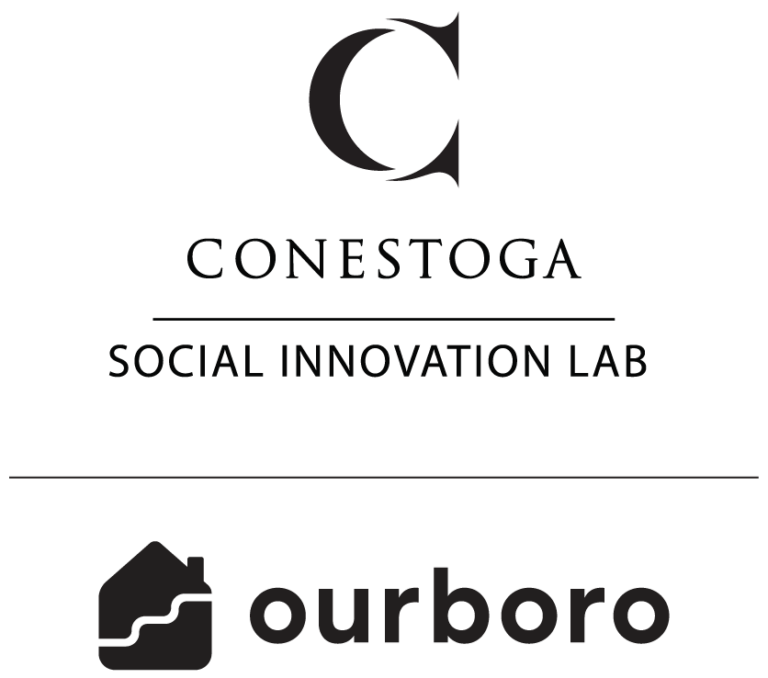Making a Difference
Ourboro’s Impact
As a social impact organization, we aim to increase access to homeownership, and all of its associated benefits. So we asked ourselves:
Does participating in a shared equity model improve a person’s quality of life?
Our Impact by the Numbers
Our Homeowners
At Ourboro, we’re dedicated to levelling the playing field, unlocking homeownership for those that would otherwise be left out. Based on applicant data, we learned the following about our homeowners:
identify as visible minorities
were born outside of Canada
identify as a religious minority
Quality of Life1
When researchers from Conestoga College compared Ourboro homeowners to Ontario renters across multiple categories, our homeowners scored:
higher when asked about their home’s condition
higher when asked if their home meets their needs
higher when asked about their home’s condition
higher when asked if their home meets their needs
higher in feelings of neighbourhood belonging
higher in life satisfaction
lower in feelings of neighbourhood disorder
Neighbourhood Outcomes1
We then compared Ourboro homeowners’ new neighbourhoods to their old ones and found that they’re moving to areas where:
Residents have shorter commute times
Homes are more suitable to residents’ needs
More families meet the definition of affordable housing 5
Residents have shorter commute times
Homes are more suitable to residents’ needs
More families meet the definition of affordable housing 5
Economic Resiliency
Beyond the personal benefits, homeownership also contributes to wealth creation:
of Ourboro clients said that their economic situation would improve in the coming year 1
expected rise in co-owner net worth per household over the next 10 years
Barriers to Homeownership
Many people, particularly those from marginalized communities, face significant barriers to entering the housing market. Balancing the playing field to help these communities access homeownership is one of Ourboro’s key impact objectives.
Homeownership is a distant reality for many visible minorities
RATES OF HOMEOWNERSHIP (Sourced from: RBC Economics, Statistics Canada 2016 Census)
The Down Payment Gap
Those without access to intergenerational wealth are also left behind. During an initial survey conducted with researchers from Conestoga College and the University of Waterloo, it was found that:
of renters feel saving enough for a down payment is one of the biggest barriers to homeownership
of renters plan to buy a home in the next 12 months, but it’s likely that only 5% of them will be able to
The Benefits of Homeownership
Health & Well-being2
Compared to renters, homeowners:
Engage in more social interaction
Have more trust in their neighbours
Are more likely to live in good quality housing
Experience greater residential stability
Civic Engagement3
Compared to renters, homeowners are more likely to:
Be politically involved
Volunteer in their community
Participate in fundraising for a charitable cause
Civic Engagement3
Compared to renters, homeowners are more likely to:
Be politically involved
Volunteer in their community
Participate in fundraising for a charitable cause
Wealth Creation4
Compared to renters, homeowners will accumulate a larger net worth over time:
$1.2M greater than non-homeowners
The Baseline Ourboro Impact Study
In our quest to deliver lasting impact to our stakeholders, we’ve partnered with researchers from Conestoga College Institute of Technology & Advanced Learning on a ten-year longitudinal study. This study explores whether participation in a shared equity model significantly enhances a person’s quality of life compared to renting. By surveying both Ourboro homeowners and a control group over 10 years, we will assess their quality of live across seven key areas:
• Overall happiness
• Economic resiliency
• Engagement in community life
• Access to high-quality education
• Perceived neighbourhood safety
• Access to adequate housing conditions
• Institutional trust
We look forward to the next 10 years of this partnership and hope to shed even more light on the tangible benefits of co-ownership through the Baseline Ourboro Impact Study.


1: “The Baseline Ourboro Impact Study”, Conestoga Social Innovation Lab, 2024.
2: “Racial and ethnic stratification in the relationship between homeownership and self-rated health”, Social Science & Medicine, Volume 115, 2014.
3: “How does homeownership contribute to social and civic engagement?”, Habitat for Humanity International, 2023.
4: “Survey of Financial Security (SFS)”, Statistics Canada, 2020.
5: Affordable housing: Paying no more than 30% of before-tax monthly income toward housing.